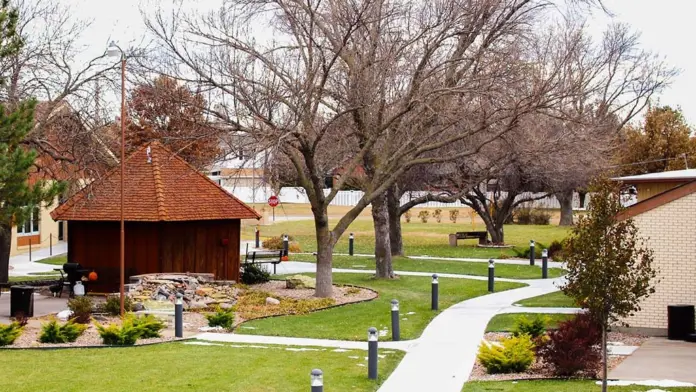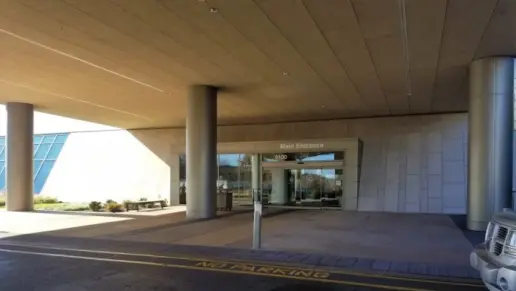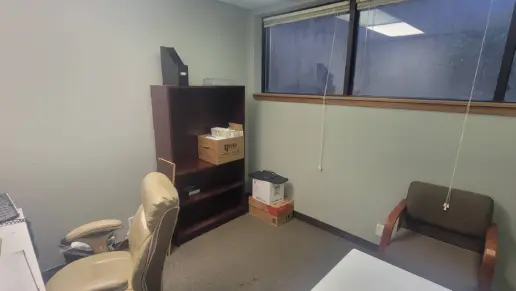valley hope saved my life, I am very grateful to the administrative staff, the nurses, counselors and all the people who were part of my recovery process. Thanks for being so incredible.
About Valley Hope of Norton
Valley Hope of Norton is a drug and alcohol rehab facility located in Norton, Kansas. They are a residential facility for adults with substance use disorder. They treat people with dual diagnoses who suffer from a mental health condition and addiction issues at the same time.
They offer a safe place to detox if you have drugs in your system. There is a 24-hour medically trained staff that will monitor your heart rate and blood pressure often. They can provide you with medically assisted treatment if detoxing is too painful for you.
All clients are treated with group and individual therapy. Groups are divided into several categories. You will be in treatment 40 hours a week. They will introduce you to the 12 step concept when you are here. You will also participate in some 12 step meetings.
You will enjoy recreational activities when you stay here. This may include games nights, hikes and team outdoor challenges.
The great thing about this place is all the types of therapy that they offer. They provide traditional evidence based methods such as cognitive behavioral therapy and dialectical behavioral therapy. These treatments teach you how to think in a more positive realistic way so you can change the behaviors that are hurting you.
They also use milieu therapy. This is a type of group treatment in which you and the other people in the group will participate in everyday activities together. Each person in the group is responsible for the feelings and actions of everyone else in the group. It is designed to improve the values of participants and teach them to be less confrontational.
Latest Reviews
Rehab Score
Gallery
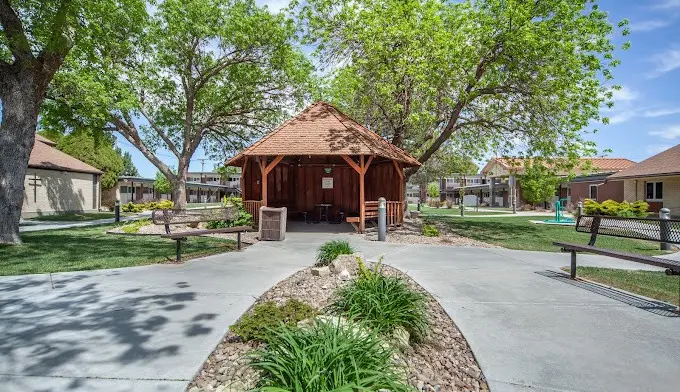
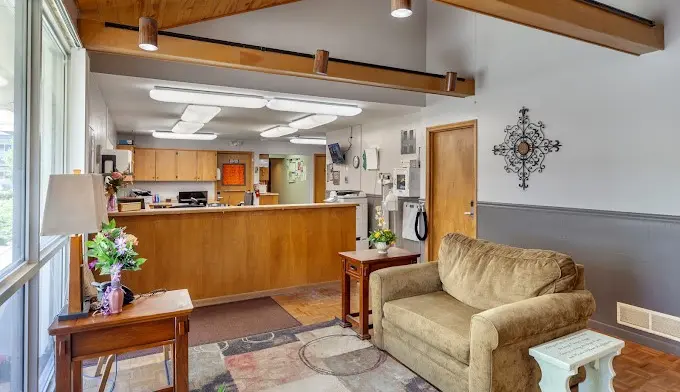
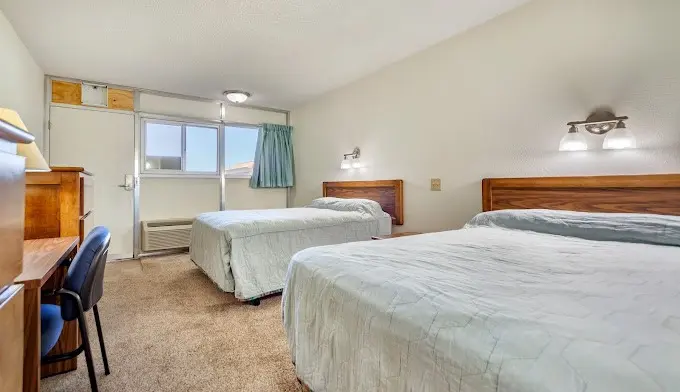
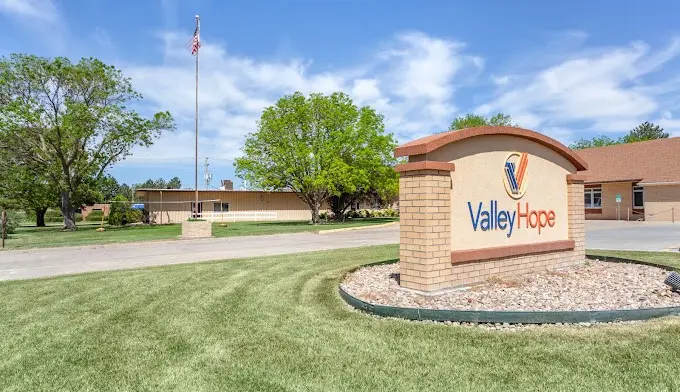
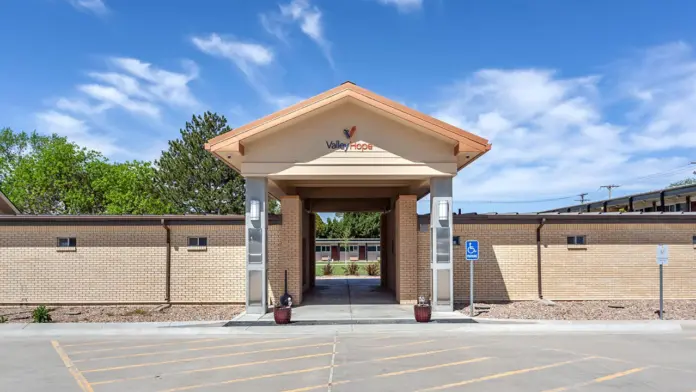
Location
Accepted Insurance
Other Forms of Payment
Private insurance refers to any kind of healthcare coverage that isn't from the state or federal government. This includes individual and family plans offered by an employer or purchased from the Insurance Marketplace. Every plan will have different requirements and out of pocket costs so be sure to get the full details before you start treatment.
Self-pay involves paying for treatment out of your own pocket. You can use savings or credit, get a personal loan, or receive help from family and friends to fund your treatment. If you don't have insurance or your insurance plan doesn't cover a specific program, self-pay can help ensure you still get the care you need.
Financial aid can take many forms. Centers may have grants or scholarships available to clients who meet eligibility requirements. Programs that receive SAMHSA grants may have financial aid available for those who need treatment as well. Grants and scholarships can help you pai for treatment without having to repay.
Medicaid is a state based program that helps lower-income individuals and families pay for healthcare. Medicaid covers addiction treatment so those enrolled can use their coverage to pay for rehab. When a program accepts Medicaid the client often pays very little or nothing out of their own pocket.
Military members, veterans, and eligible dependents have access to specific insurance programs that help them get the care they need. TRICARE and VA insurance can help you access low cost or no cost addiction and mental health treatment. Programs that accept military insurance often have targeted treatment focused on the unique challenges military members, veterans, and their families face.
Addiction Treatments
Levels of Care
Treatments
The goal of treatment for alcoholism is abstinence. Those with poor social support, poor motivation, or psychiatric disorders tend to relapse within a few years of treatment. For these people, success is measured by longer periods of abstinence, reduced use of alcohol, better health, and improved social functioning. Recovery and Maintenance are usually based on 12 step programs and AA meetings.
The length, intensity, setting, and treatment methods vary for each drug rehab in Kansas. Plans of care can be tailored to meet each person's own unique situation and needs. With the right program, individuals can successfully achieve long-term sobriety.
Opioid rehabs specialize in supporting those recovering from opioid addiction. They treat those suffering from addiction to illegal opioids like heroin, as well as prescription drugs like oxycodone. These centers typically combine both physical as well as mental and emotional support to help stop addiction. Physical support often includes medical detox and subsequent medical support (including medication), and mental support includes in-depth therapy to address the underlying causes of addiction.
Substance rehabs focus on helping individuals recover from substance abuse, including alcohol and drug addiction (both illegal and prescription drugs). They often include the opportunity to engage in both individual as well as group therapy.
Programs


Clinical Services
Cognitive Behavioral Therapy (CBT) is a therapy modality that focuses on the relationship between one's thoughts, feelings, and behaviors. It is used to establish and allow for healthy responses to thoughts and feelings (instead of unhealthy responses, like using drugs or alcohol). CBT has been proven effective for recovering addicts of all kinds, and is used to strengthen a patient's own self-awareness and ability to self-regulate. CBT allows individuals to monitor their own emotional state, become more adept at communicating with others, and manage stress without needing to engage in substance abuse.
When applying motivational interviewing, your therapist will ask open ended questions that encourage you to think differently about your challenges. They will also affirm your strengths and abilities. They will then offer empathy and reflect your thoughts back to you so you can identify any discrepancies in your current behaviors and your future goals.
During dialectical behavior therapy, you'll work with your therapist to learn new skills that allow you to better regulate your emotions. This treatment involves a pre assessment, individual therapy, skills training in groups, and telephone crisis coaching.
In individual therapy, a patient meets one-on-one with a trained psychologist or counselor. Therapy is a pivotal part of effective substance abuse treatment, as it often covers root causes of addiction, including challenges faced by the patient in their social, family, and work/school life.
Group therapy is any therapeutic work that happens in a group (not one-on-one). There are a number of different group therapy modalities, including support groups, experiential therapy, psycho-education, and more. Group therapy involves treatment as well as processing interaction between group members.
Substance use disorder (SUD) affects more than just the person struggling with the disease. It impacts every member of the family. At Valley Hope, they understand the problems families face and offer a range of programs designed to alleviate feelings of fear, guilt, frustration and resentment. Through compassion and understanding, they help families heal and recover together. They offer a variety of services for individuals, couples and families at our residential and outpatient treatment facilities. Individual, family and small group sessions explore emotional responses to addiction and consider positive ways of managing emotions. Interactive lectures help families understand the disease of addiction and learn behaviors that will support their loved one’s recovery. Designed to help families begin the healing process, Family Intensive Treatment (FIT) offers daily online group discussions facilitated by a family counselor, plus individual therapy online once a week. Online video conferences are held weekly in a live group session. FIT is offered to any person affected by a loved one’s substance use disorder. You do not have to have a family member at one of our centers in order to participate.
Couples therapy can help with problem solving, communication, forgiveness, and relationship satisfaction. This type of therapy is typically short term, and couples may meet with the therapist together as well as in separate sessions.
Amenities
-
Residential Setting
Accreditations

The Joint Commission, formerly known as JCAHO, is a nonprofit organization that accredits rehab organizations and programs. Founded in 1951, the Joint Commision's mission is to improve the quality of patient care and demonstrating the quality of patient care.
Joint Commission Accreditation: Yes

LegitScript has reviewed Valley Hope of Norton as part of their certification program, and has determined that it meets the LegitScript standards for legality, safety and transparency.
LegitScript verified in January 2017

The National Association of Addiction Treatment Providers (NAATP) is a professional association that represents organizations in the field of addiction services. Founded in 1978, NAATP's mission is to advance addiction services and ensure that high-quality addiction treatment is available and accessible.
NAATP Member: Yes
Member ID: 1481
Contact Information
709 West Holme Street
Norton KS, 67654
